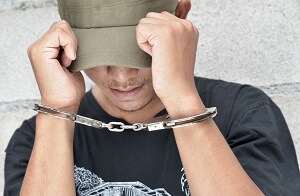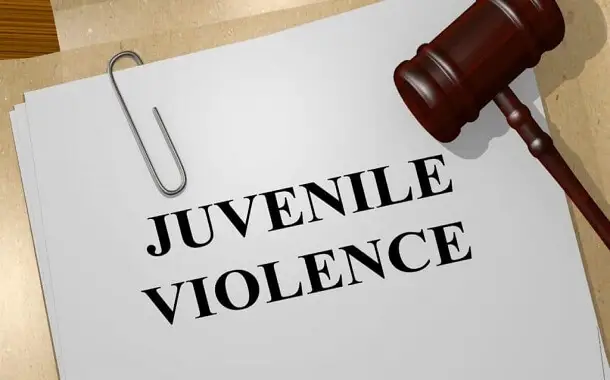How Much Does a Juvenile Crime Attorney Cost?
Last Updated on March 16, 2024
Written by CPA Alec Pow | Content Reviewed by ![]() CFA Alexander Popinker
CFA Alexander Popinker
Children not considered of age to be held responsible for whatever criminal acts they commit, will fall under Juvenile law. Most states consider juveniles individuals under the age of 18.
How Much Does a Juvenile Crime Attorney Cost?
On the low end, a Juvenile Crime attorney costs somewhere between $1,500 and $3,500, although the average cost of this type of attorney will usually fall between $3,000 and $11,000.
Of course, the amount a lawyer will charge you for helping you with your case will depend on several factors, and considering that most of them will charge by the hour, among the most important things to influence the final bill will be the amount of work required for your specific case. The amount you pay will also depend on the lawyer’s experience and reputation, the complexity of the case, the severity of the charges, and whether or not the case is tried before a judge or not.
Although most lawyers work on an hourly rate that can be anywhere between $100 and $400 or even more, some might have a flat fee for certain services related to your case. Most of the time, you will be charged a retainer, which is an advance fee, which will be based on an estimated number of hours or the flat rate, depending on what you agree on with the lawyer.
When working on an hourly basis, the professional will deduct charges from the initial retainer as the hours pass and the work gets done. You will find lower rates when work is done by clerks or paralegals. You will only be billed additionally when there is no more money to take from the retainer.
Depending on the state and your particular case, the court can assign a court-appointed attorney or public defender to represent the juvenile, but the guardian or parent will still be billed for the legal services, although the rates will usually be considerably lower than those charged by a private attorney. A lawyer can also be provided without charge if the income of the guardian or parents is considered too low to afford legal defense.
What should be included
According to the law, juveniles commit delinquent acts and not “crimes” per se. Most of them are only considered crimes when they are done by someone who is already an adult. Unless they are tried as adults, juveniles won’t have the constitutional right to a jury trial. They also have no right to bail or a public trial.
You might also like our articles about the cost of a consumer protection lawyer, criminal defense lawyer, or child support lawyer.
Judges will be the ones to hear most juvenile cases. As for the trial phase, in juvenile cases, this is called a jurisdiction or adjudication hearing. This is when the judge will determine whether the child is a delinquent, based on the available evidence.
It will then fall on the court to figure out the best action to be taken that will be in the best interest of the child. This can include confinement, placement, treatment, or supervision, with rehabilitation, and not punishment, as its main official goal. You will find an overview of the juvenile criminal justice system on the official American Bar Association website.
Additional costs to consider
 The parents of the juvenile might also have to pay for any services provided by the government, aside for the fees for legal services provided by the court-appointed attorney or public defender. This can include costs related to laundry and food costs during out-of-home placement, a probation camp, or residence in a detention facility.
The parents of the juvenile might also have to pay for any services provided by the government, aside for the fees for legal services provided by the court-appointed attorney or public defender. This can include costs related to laundry and food costs during out-of-home placement, a probation camp, or residence in a detention facility.
Depending on the income level of the parents, these fees can be reduced or even waived completely.
Most attorneys will offer the initial consultation for free, while others might charge a normal hourly rate even for the initial session.
Attorneys will charge you an hourly fee not only for the time spent working on the case, doing photocopies, research, and interviews in your name, but also for answering your questions by e-mail or phone. When working with a lawyer that charges an initial flat fee, they might need to charge you additionally for different phases and activities throughout the process. Make sure you get a detailed bill when you’re charged separately for multiple services.
How to find a juvenile crime attorney
Before picking an attorney, make sure you get in touch with several professionals and ask about their experience especially in juvenile courts, and not the usual adult criminal justice system.
Make sure you bring things like the minor’s birth certificate, documentation of their school work, including awards and report cards, as well as copies of prior police records or juvenile court records, when you’re meeting with the juvenile defense attorney for the first time. Ask as many questions as you can during your initial visit, to make sure you understand every part of the process and any costs involved.
You can find referrals on the National Association of Counsel for Children website, while the American Bar Association has links to lawyer referral services depending on your state.
Get a written fee agreement from the attorney so you know how much you’re paying and for what services.


Leave a Reply
Want to join the discussion?Feel free to contribute!